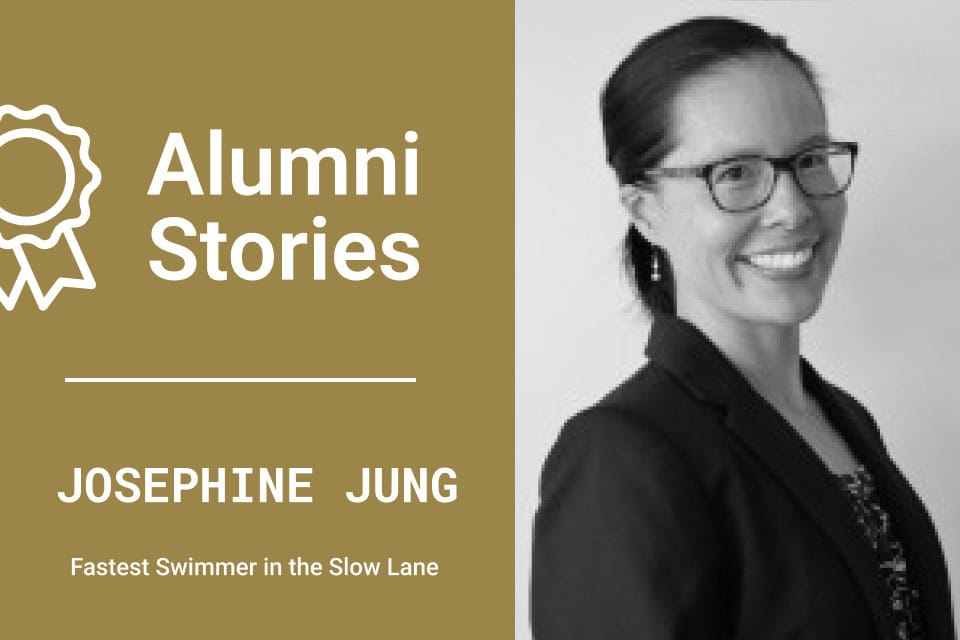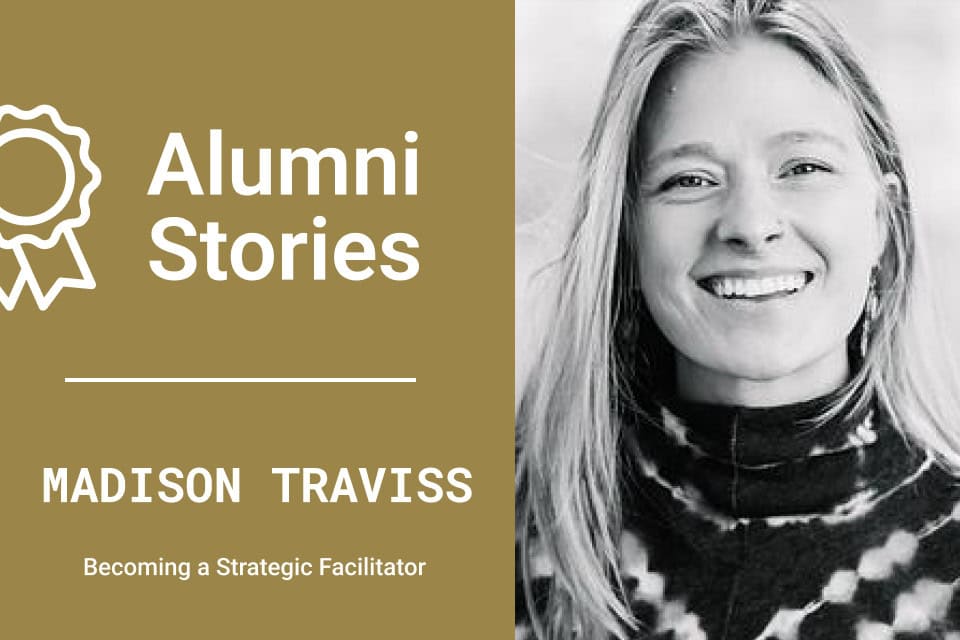My Quest for Collaboration Became a Facilitation Odyssey
Back in my early days, before the term ‘facilitation’ was even a blip on my radar, I was deeply immersed in the world of design and innovation. Design, to me, wasn’t just about crafting sleek interfaces or eye-catching visuals; it was a full-contact sport. I firmly believed that design needed to be a public act, a collaborative effort that engaged everyone from product managers to engineers. This belief nudged me into what would become my first foray into facilitation. Without even realizing it, I was taking the lead in discussions, eager to sway hearts and minds to bring collective visions to life. It was in these moments, standing in front of colleagues and guiding conversations, that I began to understand the essence of facilitation. It was raw, unrefined, and entirely intuitive. But it was a start.
Reflecting on those early experiences, one stands out vividly. While at LexisNexis, I was given the latitude to dive deep into mapping experiences. This wasn’t just any task; it was a challenge that threw me into the deep end of facilitation. Tasked with leading a mapping exercise for our European business unit, I orchestrated a session for stakeholders flying in from all corners of the continent. The stakes were high, and the audience was diverse. Yet, as I navigated through this intricate dance of ideas and insights, something clicked. The success of that session and the many that followed across the globe, from Australia to the Netherlands, was a testament to the power of effective facilitation. These were my formative years, where the seeds of facilitation were unknowingly sown, setting me on a path I never anticipated.
A New Chapter Begins
As my career progressed, the realms of design and facilitation began to intertwine more visibly. My move to Citrix was a notable milestone, not just for the shift in my professional landscape but for the deepening of my involvement in remote collaboration. Here, the essence of facilitation permeated through my work, albeit still in an informal capacity. I found myself at the forefront, not just as a designer but as a facilitator of ideas and conversations. This dual role was becoming a part of my identity, propelling me towards a greater understanding of what it meant to lead discussions that mattered.
The real turning point came with my engagement with Mural and, subsequently, Voltage Control. My collaboration with Mural opened new avenues, connecting me with a broader community passionate about facilitation and collaboration. It was during this time that I stumbled upon the treasure trove of literature on facilitation. Books like “Game Storming” and “The Art of Gathering” by Priya Parker became my guides, enlightening me about the structured world of facilitation I had been navigating through instinct alone. These discoveries were eye-opening, revealing a structured discipline where my self-taught skills could find validation and growth.
A Catalyst for Learning
Voltage Control emerged as a beacon in my journey. Their partnership with Mural, coupled with their reputation for deep dives into the facilitation process, intrigued me. The more I learned about Voltage Control’s offerings and their community-driven approach, the more I realized the gaps in my understanding. This was a world where my ad-hoc experiences could be honed into something more profound and impactful. The decision to engage more directly with Voltage Control and consider their certification program was a natural next step. It promised not just to fill the gaps but to elevate my practice to a level I had only begun to imagine.

The decision to join Voltage Control’s certification program wasn’t made in isolation. It was the culmination of a series of serendipitous events and realizations. The moment Douglas reached out with an invitation to participate, the decision felt like a natural progression of my journey. The seeds of curiosity sown during my time with Mural and my explorations into the literature of facilitation had prepared me for this step. It was as if all the paths I had walked were converging, guiding me toward a future I was meant to embrace.
Colleagues and Confidence
Knowing that individuals I respected and admired, such as Mark Tippin and Emilia Åström, had gone through the program and emerged with positive experiences provided a sense of reassurance. Their encouragement was a catalyst, pushing me to seize this opportunity not just for the knowledge I would gain but for the professional growth that would inevitably follow. This wasn’t just about filling gaps in my understanding; it was about joining a community of practitioners dedicated to elevating the art and science of facilitation.
Deciding to embark on the Voltage Control certification journey was, in many ways, a leap of faith. Faith in the program’s ability to refine and expand my facilitation skills, faith in my capacity to grow and adapt, and faith in the idea that this path would lead me to become a more effective leader, designer, and facilitator. The anticipation of what lay ahead was both exhilarating and daunting. Yet, the clarity of my decision was undeniable. This was the next step I needed to take, not just for my career but for my ongoing quest to unlock the full potential of collaborative design and innovation.
Immersive Learning
The certification program at Voltage Control was unlike anything I had experienced before. It was an immersive journey that stretched over three months, challenging and enriching in equal measure. The curriculum, meticulously designed by Eric, was both comprehensive and engaging, blending theoretical insights with practical application. This wasn’t just about acquiring knowledge; it was about embedding it into practice. The structure of the program—with its mix of synchronous and asynchronous learning, coupled with assignments that fostered collaboration with fellow participants—created a dynamic learning environment that kept me engaged and motivated throughout.
One of the most significant revelations for me was the depth and breadth of facilitation as a discipline. The program offered a panoramic view of the facilitation landscape, covering everything from the fundamentals to advanced techniques. It was enlightening to explore topics like the importance of warm-ups, the art of debriefing, and the nuanced role of a facilitator in guiding discussions and nurturing collaboration. These sessions weren’t just educational; they were transformative, challenging me to rethink my approach and adopt a more structured and intentional stance toward facilitation.
The Power of Reflection
Perhaps the most unexpected aspect of the program was the emphasis on reflection—both personal and professional. The process of developing my facilitation portfolio was a journey in itself, prompting me to pause and reflect on my past experiences, successes, and lessons learned. This exercise was not just about showcasing my work; it was an opportunity to introspect and consolidate my learning, providing clarity and direction for my future endeavors. It was a stark reminder of the power of reflection in fostering growth and self-awareness.
The certification program was a crucible of growth, pushing me beyond my comfort zone and expanding my horizons. It was here that I discovered not only the depth of my passion for facilitation but also the potential for impact beyond the confines of my previous experiences. The program didn’t just equip me with new tools and techniques; it instilled in me a newfound confidence and a deeper understanding of the transformative power of effective facilitation.

Post-certification, my toolkit for facilitation has not only expanded but also diversified. The program introduced me to a range of methodologies and practices that I had previously been unaware of or hadn’t fully appreciated. This broader arsenal has significantly enhanced my ability to adapt to different contexts and needs, ensuring that I can offer more tailored and effective facilitation solutions. Whether it’s incorporating more thoughtful warm-ups, leveraging pop-up rules to navigate unexpected challenges, or crafting more impactful debriefs, my approach has become more nuanced and impactful.
A Deeper Appreciation for Purpose
One of the most profound shifts in my perspective has been a deeper appreciation for the importance of purpose in facilitation. The discussions around the significance of setting a clear purpose for each session, and the exploration of various process design elements, have fundamentally altered how I approach my work. This newfound understanding has enabled me to design and lead sessions that are not only more engaging and effective but also more meaningful for all participants. It’s a shift that has not only improved the quality of my facilitation but also the outcomes of the collaborative efforts I lead.
Looking ahead, the capabilities and insights gained from the certification program have opened up new avenues for impact. Facilitation, I’ve come to realize, is more than a skill set for leading meetings or workshops; it’s a foundational competency that underpins effective leadership, innovation, and collaboration. As I continue my work at Mural, these capabilities are proving invaluable in helping me navigate the complexities of remote collaboration, drive product innovation, and foster a culture of inclusive and effective teamwork. The program has not just transformed how I facilitate; it’s reshaped how I lead and contribute to my organization.
A Catalyst for Continuous Growth
The journey through Voltage Control’s certification program has been a catalyst for a broader transformation in my professional life. It has sparked a continuous quest for growth, encouraging me to keep exploring, learning, and applying new facilitation techniques and approaches. This mindset of continuous improvement and the drive to further hone my facilitation practice are what I see as the most lasting impacts of the program. As I look to the future, I’m excited about the opportunities to further integrate these capabilities into my work, exploring new ways to leverage facilitation as a tool for driving change and innovation.
The journey through the world of facilitation has been nothing short of transformative for me. As I stand at this juncture, reflecting on the path behind and the horizon ahead, I’m filled with a sense of purpose and possibility. The future, as I see it, is ripe with opportunities to apply my newfound capabilities in ways that extend far beyond the traditional boundaries of facilitation. My role at Mural, coupled with the insights and skills honed through the Voltage Control certification, positions me to pioneer innovative approaches to collaboration, leadership, and organizational development.

The next chapter of my journey is dedicated to elevating the art and science of collaboration within Mural and among our global community of users. Armed with a deeper understanding of facilitation, I’m exploring new ways to enhance remote and hybrid work environments, making them more engaging, productive, and inclusive. The goal is not just to improve how teams work together but to transform the very fabric of collaboration, making it a source of competitive advantage and creative breakthrough.
Beyond the immediate realm of my professional duties, I envision a future where the principles of effective facilitation are woven into the cultural DNA of organizations worldwide. My ambition is to be at the forefront of this movement, advocating for the role of facilitation as a critical skill for leaders, innovators, and change-makers. By championing a culture of facilitation, I aim to catalyze a shift in how problems are solved, decisions are made, and visions are realized across industries and communities.
For Future Explorers
To those standing at the threshold of their facilitation journey, my message is one of encouragement and excitement. The path of learning and growth in this field is rich with challenges and rewards. Embrace the journey with an open mind and a committed heart. The skills you develop and the insights you gain will not only enhance your career but also amplify your impact on the world around you. The future of work, leadership, and innovation is inextricably linked to our ability to facilitate meaningful conversations and collaborations. I invite you to join this exploration, to discover your own path, and to contribute to the evolving landscape of facilitation and beyond.


